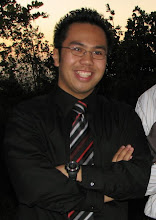
Above: Robin Williams as Mr. Keating in the 1989 film.
"QUESTION EVERYTHING..."
I just had to watch it. Yes, its the 1989 film Dead Poets Society that you probably ended up watching in English class somewhere between in middle or high school (provided you were born in the 1980s). For some of you that haven't been paying attention to pop culture, this film features Robin Williams as Mr. Keating, an English teacher at one of the best boarding schools in 1950s America. He basically teaches his students different ways of challenging life & what it presents. Although some critics said that the movie was so moving, he "had to vomit," (Roger Ebert), many critics said acclaimed the movie as very powerful. I have to agree with those that fit with the latter. Last night, as I sat down tired after practicing physical exams for my midterm for hours, I decided to pop in the film.
It all came back to me why this film easily fits as one of my favorite films of all time.
My revelation had to come with how it had to appeal to learning medicine. One of the stereotypes of medicine that I had gotten is that it is basically a memorization science. Each and every time I'd sit down and study, it seemed that way...
Tamoxifen... SERM... Raloxifen... Different SERM... [rinse, repeat, and recycle]
Tamoxifen... SERM... Raloxifen... ... ... [snore]
However, Mr. Keating... he brings up a good point while in class. After telling his students to take a look at a new perspective (which he does by telling each one of them to stand up straight on his desk and look down upon the classroom), he tells them to... question everything. I interpreted that as not accepting everything for an answer. From what I've been vying while studying for boards is, that's so true... I can understand things so much better if I place importance on it by questioning it and figuring out, for instance, why condition X causes Ys symptoms. Sometimes I'll let my mind flow and I'll link random things together... like the movie emphasizes: Freedom of Thought.
MEDICINE IS NOT MEMORIZATION... ITS THE ART OF ENGINEERING...
On the other hand, medical students I'm sure can vie for me: we don't have the time to just "art" our way through exams. Nor does it seem possible to cover so much information in such a short time (about two years). We have to know the inside outs of the human body... everything from mechanisms to things that go wrong to parts of anatomy... and we could go on forever. That was one of the hardest things to get used to, was limiting my thought (or now I see it as shortcutting) via memorization so I could get the grade (or just pass), but not getting a full understanding. It's just like that systematic thought idea that I learned in the OR several weeks ago.
In the end, my mind would give up and say something like: So what if Tamoxifen is a SERM... whoop de doodle... (THEN I WOULD FORGET ABOUT THE DRUG)
For those of you who are new to the medical field, beginning in the basic sciences, I encourage you to find a way... a way of thought... to motivate yourself to somehow start linking things medically from the beginning, because that flowing thought is what you're going to see in clinicals... you're going to need that freedom away from memorization, studying from grades, in order to have that true understanding to save that patient.
I everyone had a Mr. Keating in their med school career. To teach students to be thinkers (by teaching them how to think) and to teach students to understand (and not just get the material). Then, med school wouldn't just be flash cards and powerpoint slides anymore... it'd be like painting or creating your own vision of the human body. And with that, the field of medicine, as I see it, could be yours.
For some odd reason, I hope I can be in the position in the future to help med students see things that way... provided that I master this skill in medical school.
In that way, I want to be a Mr. Keating.


No comments:
Post a Comment